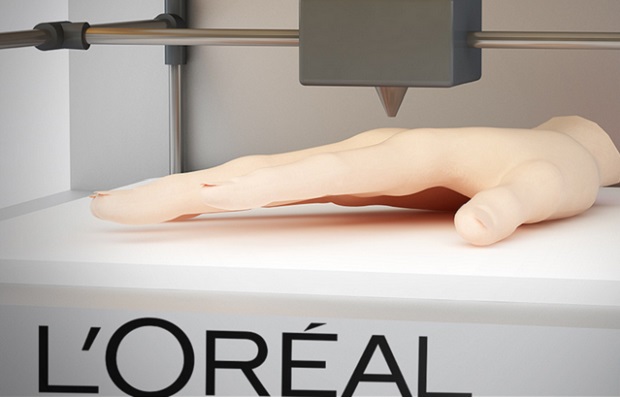L’Oreal is developing a 3D printing process to create human skin, which could be used in product tests to avoid animal testing.
The French cosmetics giant has partnered bioprinting startup Organovo to figure out how to 3D print living, breathing derma that can be used to test products for toxicity and efficacy.
“We’re the first beauty company Organovo has worked with,” says Guive Balooch, global vice president of L’Oreal’s tech incubator.
The firm is already growing more than 100,000 skin samples annually, but under the current method, skin samples are grown from tissues donated by plastic surgery patients in France are then cut into thin slices and broken down into cells.
With San Diego-based Organovo’s help, L’Oreal aims to speed up and automate skin production within the next five years.
Research for the project will take place in Organovo’s labs and L’Oreal’s new California research center. L’Oreal will provide skin expertise and all the initial funding, while Organovo, which is already working with such companies as Merck to print liver and kidney tissues, will provide the technology.
Organovo has already made headlines with claims that it can 3D-print a human liver but this is its first tie-up with the cosmetics industry.
Its statement explaining the advantage of printing skin, offered little detail: “Our partnership will not only bring about new advanced in vitro methods for evaluating product safety and performance, but the potential for where this new field of technology and research can take us is boundless.”
It also gave no timeframe for when printed samples would be available, saying it was in “early stage research”.
However, printed skin has more value in a medical scenario, potentially creating stores of spare skins for burn victims.

